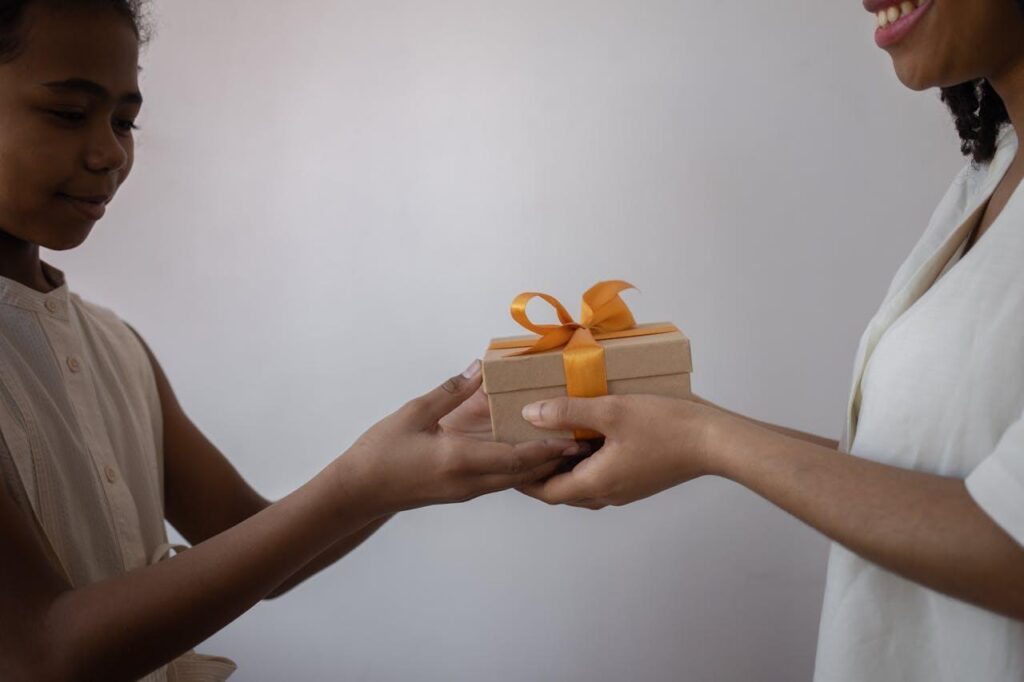Pssst, we’ll let you in on a secret: if you want to reinforce good behavior in your kid, give them a gift for each important milestone and accomplishment. It’s simple, doesn’t need to be expensive (at all), but when done right and consistently, it 100% works. Psychologists have long studied this link between rewards and positive reinforcement, and the gist of it is: when a reward (or gift) is tied to an achievement, it strengthens the mental link between effort and outcome. However, and this is an important however, gifts given at random or without context don’t work for this purpose. What works best are, again, purposeful gifts: graduation ceremonies, skill-level achievements, or personal goals. So, how do you choose one that’s meaningful and worth remembering months, sometimes even years later? We’re here to help!
Fun Experience Days That Align With Interests
Kids and teens love to do fun things, who knew! Seriously, if you want to give something special to your child, give them an experience that aligns with their interest or likes. Instead of defaulting to generic outings, pick something you know they’re either passionate about (best) or at least interested in (can work wonders as well). For example, if a teen just completed a coding bootcamp, a one-day pass to a robotics workshop would probably be ideal. If a child’s been thriving in a local sports program, tickets to see a professional match can reinforce their effort. Budget-wise, experience days can be as modest or as extravagant as you choose. A well-planned, low-cost activity—like a day volunteering at an animal shelter for a budding veterinarian—can be just as memorable as a family trip. The point is, if money is tight, that shouldn’t be an obstacle; just pick an activity you know they’d like to see or participate in.
A Parent Letter Bundle
Don’t scroll past this suggestion! Even if your kid might not appear particularly emotional or sentimental. In fact, this is the one gift many kids (especially teens) pretend not to care about, then secretly keep forever: letters. A letter doesn’t have to be long, but it should be specific. Highlight what they achieved, how you saw them grow, and why it matters. You can even create a sealed bundle with “open on” dates: one for the next milestone, one for a tough day, and one “just because.” Developmental psychologists point out that this kind of tangible affirmation helps strengthen self-esteem, especially in the pre-teen and early teen years when identity is still taking shape.
Symbolic Flowers for Ceremonies
Some moments don’t need big or heavy gifts. A small bouquet of flowers (or even just one) at the right time can be enough.  Graduation bouquets are classic for a reason: they show up well in photos, they’re easy to carry, and they quietly say “this is a big deal” without you making a speech. You can make it even better by making it personal: their favourite flower, or the colour of their sports team. Even something grown at home will be remembered if given at the right time.
Graduation bouquets are classic for a reason: they show up well in photos, they’re easy to carry, and they quietly say “this is a big deal” without you making a speech. You can make it even better by making it personal: their favourite flower, or the colour of their sports team. Even something grown at home will be remembered if given at the right time.
Journal…or Whatever Fits Their Version of a Journal
Some kids write, some doodle, some fill notebooks with lists of random facts — others may love seeing themselves as the hero of a custom story from Wonderwraps. A milestone is a good time to give them something to keep that going. For younger ones, a guided journal with prompts stops them from getting stuck on “what do I write?” For older teens, a solid, well-made blank book says “this is yours, no rules.” And if they’re not the writing type, the “journal” could be a sketchpad, a camera, or even software that helps them build whatever they’re into.
A Service or Donation in Their Name
If your kid or teen is socially aware or passionate about causes (or wants to be), consider arranging a charitable act in their name. It’s a great way to validate their values and encourage empathy. If they love marine life, donate to an ocean clean-up program and present them with the certificate. Or if they’ve been volunteering themselves, make a contribution to that very cause. Studies show that kids who see themselves making a difference early are more likely to carry that into adulthood. Linking this kind of gift to a milestone reinforces that their personal achievements can also have an impact beyond themselves.
Keep These Three Things in Mind
If you take nothing else away from this, remember:
- Right timing: give it while the moment’s still warm.
- Personal fit: make it about them, not about what’s convenient to buy.
- Lasting meaning: if they won’t remember why they got it in a year, it probably wasn’t the right choice.
The gift itself doesn’t have to be big. The point is to mark the milestone in a way that connects directly to the work, the win, the growth. Do that, and it won’t just be “something they got once.” It’ll be part of the story they tell years from now—when they’re the one deciding how to mark someone else’s big moment.

